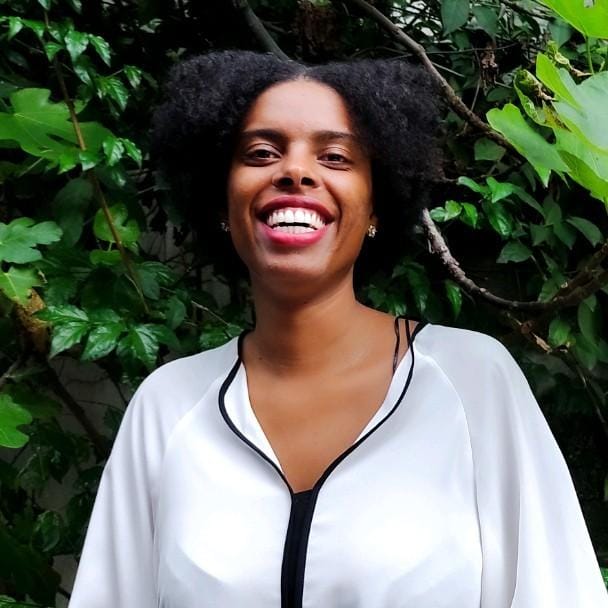Brazil: the 2nd most unequal country in the world
- Monique Prado

- 23 de jun. de 2021
- 3 min de leitura
“I came from planet hunger”. These are words spoken in the 1950s by Elza Soares, a famous brazilian singer who as a teenager, participated in brazilian show hosted by the Ary Barroso who tried embarrassing her asking where she came from. Elza promptly responded with that phrase that revealed the trouble of having lived under hunger. In 2020, in an interview with the portal G1 the singer reaffirmed “I'm still on planet hunger”.
According to data from the Ministry of Citizenship, 1/3 of the Brazilian population took out emergency aid in 2020, which corresponds to almost 68 million people counting a contingent of young people between 25 and 34 years old.
In addition, the study shows that 55% of the public was made up of women, which shows the need for public policies related to care and the eradication of hunger are necessary, especially with gender and race cuttings because according to the Instituto Brasileiro de Geografia e Estatistica - IBGE the Family Budget Survey, more than half of the households with severe food insecurity are headed by black women.
Fundação Getulio Vargas - FGV Social estimates that the population with less than R$ 246 per person in extreme poverty has reached almost 27 million Brazilians due to the current crisis.
The increase in people in conditions of social vulnerability is due to several factors. Among them, the worsening of the health crisis affected by Coronavirus, in addition to the adoption of neoliberal austerity policies taken by the current government, which promoted considerable cuts in social policies, in terms of food security and family farming, especially because the government extinguished the Conselho Nacional de Segurança Alimentar e Nutricional (Consea) - National Council of Food and Nutritional Security, pushing millions of Brazilians into extreme poverty.
On the other hand, income concentration has become a major problem to be faced, since Brazil is the 2nd most unequal of the 180 countries measured by the UNDP world ranking, only behind Qatar. Even before the pandemic, the United Nations (UN) Report published at the end of 2019, showed that 1% of the richest Brazilian population held 28.3% of the country's income, which is one third of the total.
According to the Instituto Justiça Fiscal - Fiscal Justice Institute, the concentration of wealth that causes brutal inequality in Brazil is directly related to the absence of taxation on high incomes, donations and inheritances, in addition to regressive rates on the Individual Income Tax that benefit those in the positions highest in the social pyramid. The implications are that 0.01% of the richest population earns 610 times more than 80% of the rest of the population that earns up to 5 minimum wages.
It is good to remember that the constitutional tax on large fortunes was never instituted in Brazil, which allowed that approximately R$ 650 billion in uncollected taxes remained in the hands of the richest between 2007 and 2018, according to the study.
The Instituto Justiça Fiscal Fiscal Justice Institute also showed that even during the pandemic, the 42 Brazilian billionaires increased their fortunes between April and July 2020, while the crisis worsened for millions of Brazilians, making the lives of the poorest even more precarious.
Although it does not nullify the State's duty to promote policies to eradicate hunger and extreme poverty and also immediately change the tax legislation to tax the richest, as hunger is an emerging issue, among the many Food Campaigns that have gained prominence in the pandemic, we observe the National Campaign “Tem gente com fome” - “There are hungry people” led by the Coalizão Negra Por Direitos - Black Coalition for Rights and other civil society organizations that the goal is to raise funds for emergency actions to fight hunger, poverty and violence in the Covid-19 pandemic projected to contribute to 222,895 families in conditions of social vulnerability and provide humanitarian support, it will work in the suburbs, favelas and quilombos of the 27 federative brazilian units.
Food insecurity places millions of Brazilians in a situation of severe food deprivation, so that this basic need affects those at the bottom of the social pyramid. Facing social inequality involves discussing the taxation of the wealth of the 0.01% richest among Brazilians. Taxation is already common in other countries such as France, Belgium, Holland, Germany and neighboring Uruguay, Colombia and Argentina. In our case, the tax that enters the public coffers should promote public policies guaranteeing Food Security for many families who are in extreme poverty in the country, in addition to equating other basic rights such as education and health.






Comentários